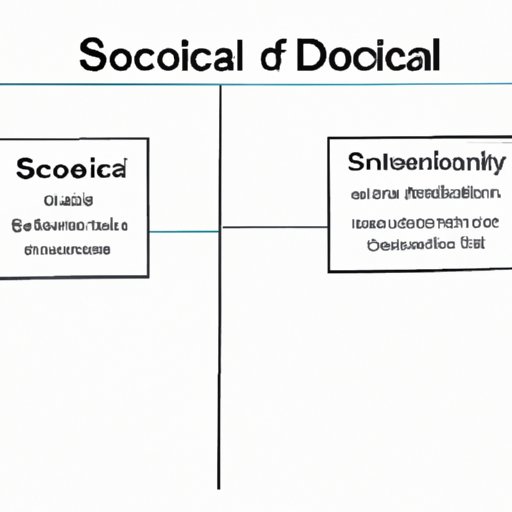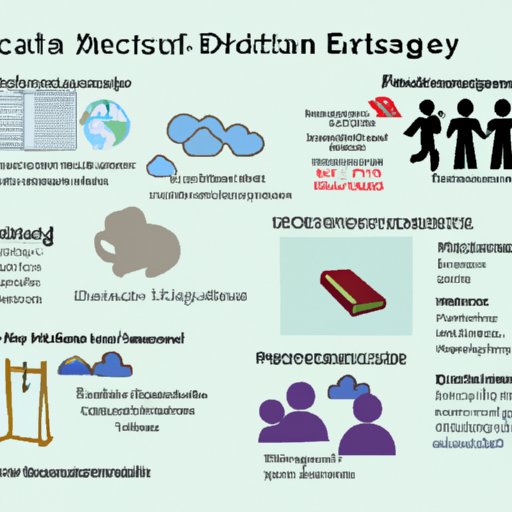Introduction
Social science and social studies are two closely related yet distinct fields of study. While there is some overlap between them, it is important to understand their differences and similarities in order to gain a better understanding of their implications for society. This article will explore the definition of social science and social studies, examine the areas in which the two fields overlap and diverge, analyze the implications of both fields for society, investigate the use of social science and social studies in education, and consider the impact of these fields on student learning.
Exploring the Differences between Social Science and Social Studies
Social science is an academic discipline that focuses on the scientific study of human societies and social interactions. It encompasses a wide range of topics, including economics, sociology, anthropology, psychology, political science, and geography. The goal of social science is to generate knowledge about the world and to develop theories that explain why societies behave the way they do.
Social studies, on the other hand, is an interdisciplinary field that combines elements from various academic disciplines, including history, sociology, geography, economics, and political science. It is focused on the study of past and present societies and cultures, with the aim of developing an understanding of how societies function and how they can be improved. Social studies is often taught in primary and secondary schools as part of the curriculum.

Comparing Social Science and Social Studies
While there is certainly some overlap between social science and social studies, there are also significant differences between the two fields. For instance, social science is primarily concerned with the scientific study of human behavior and society, while social studies is more focused on the historical and cultural aspects of society. Additionally, social science is typically studied at a university level, while social studies is often taught in primary and secondary schools.
At the same time, both fields have implications for society. Social science provides a scientific framework for understanding how societies work and how they can be improved, while social studies encourages critical thinking and civic engagement. According to the American Sociological Association, “social science research helps us to understand the complexities of human behavior, social trends, and social forces, and the ways in which we interact with our environment.”

Applications of Social Science and Social Studies in Education
Social science and social studies can both be used in the classroom to promote student learning. For example, social science can be used to teach students about different cultures, while social studies can be used to teach students about history and current events. Additionally, both fields can be used to help students develop critical thinking skills and engage in meaningful discourse.
Studies have also shown that incorporating social science and social studies into the classroom can have a positive impact on student learning. According to a study by the National Center for Education Statistics, “teachers who integrate social science and social studies into their instruction report higher levels of student engagement and higher test scores than those who do not.”
Conclusion
In conclusion, while there is some overlap between social science and social studies, there are also significant differences between the two fields. Social science is primarily focused on the scientific study of human behavior and society, while social studies is more focused on the historical and cultural aspects of society. Both fields have implications for society, and can be used in the classroom to promote student learning. In sum, social science and social studies are two distinct yet related disciplines that can both be used to gain a deeper understanding of the world.
(Note: Is this article not meeting your expectations? Do you have knowledge or insights to share? Unlock new opportunities and expand your reach by joining our authors team. Click Registration to join us and share your expertise with our readers.)
